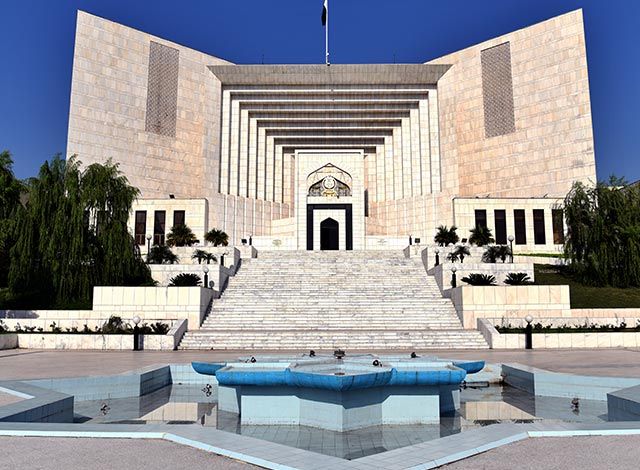The Islamic Republic of Pakistan is a federal republic with a codified constitution that was adopted in 1973. Although the executive authority of the federation is exercised in the name of the President (Articles 90(1) and 99(1) of the Constitution), he is bound to exercise his functions on the advice of the cabinet or the Prime Minister (Article 48 of the Constitution). Thus, the President’s role as head of the state is ceremonial only, while true executive authority over the Federation lies with the Prime Minister and his cabinet of ministers (Article 90(1) of the Constitution).
The sub-federal jurisdictions consist of four Provinces (the Punjab, Sindh, Balochistan and Khyber Pakhtunkhwa), the Islamabad Capital Territory (ICT), the Federally Administered Tribal Areas (FATA) and such states and territories as may be included in Pakistan by accession or otherwise (Article 1(2) of the Constitution). In terms of legislative and executive competence, ‘public health’ has always been a provincial subject. Although all provinces therefore had autonomy to deal with the pandemic, the actual response was marked by heightened cooperation with and guidance from the federal government. This was driven in part by the Supreme Court’s repeated calls for a unified national response to the pandemic.
The Supreme Court has the power to act suo motu. In fact, this suo motu jurisdiction has played a dominant role in shaping the initial response to the pandemic. The court took cognisance while adjudicating upon an appeal challenging the release of under trial prisoners (on bail) pursuant to, inter alia, directions issued by the Islamabad High Court. The purpose of these directions was to mitigate the threat of an outbreak of Covid-19 in prisons, and the court had issued them in exercise of its inherent power under the Code of Criminal Procedure, 1898. During the hearing of the appeal, the Supreme Court had directed the federal and provincial governments to submit reports about the measures being taken ‘to overcome and tackle this pandemic’. Ultimately the Supreme Court set aside the Islamabad High Court’s directions and recalled all bails granted in those terms. In doing so, the court converted the petition into one under Article 184(3) of the Constitution (Suo Motu Case No.1/2020) and kept the ‘larger issue of combating the pandemic pending’. On the same day, the court called for ‘emergency legislation for dealing with the issues arising out of this pandemic’ and also directed the federal government to i) set up quarantine centres at the three ground entry points of Pakistan at Taftan and Chaman in the Province of Balochistan and Torkham in the Province of Khyber-Pakhtunkhwa; ii) ensure local manufacturing of PPEs; and iii) devote resources for local manufacturing and supply of ventilators.
These proceedings have thus far spanned a total of nine hearings between 7 April 2020 (when the case was first registered) and 21 July 2020 (when the case was ‘adjourned to a date in office’). During this time, the federal and provincial governments as well as their respective agencies would continue to file reports in response to the court’s questions and directions, detailing how each jurisdiction was responding to the pandemic. Notably, the Supreme Court struck down two executive orders during these proceedings: the first of these had been passed by the Government of the Punjab purporting to prohibit inter-provincial movement of people. In striking this order down, the court held that since the restriction tended to impinge upon a fundamental right (freedom of movement) protected under Article 15 of the Constitution, it could only have been imposed through legislation. The second was the imposition of a complete commercial/business lockdown on Saturdays and Sundays imposed by the Sindh government. The court found the selection of these two days to lack ‘any justifiable or rational classification’. The restriction was thus declared unreasonable and struck down on account of its incompatibility with, inter alia, the right to freedom of trade, business and/or profession protected under Article 18 of the Constitution.
Be that as it may, the court had from the outset directed all government stakeholders at the federal and provincial levels to ‘frame a uniform national policy’. This emphasis on uniformity was a refrain in the Supreme Court’s orders where the bench also highlighted the importance of legislation at the national level and warned that executive orders tended to violate fundamental rights. The court also enabled the federation to give directions to the provinces by specifically declaring that the Covid-19 pandemic was a ‘grave menace to the peace or tranquillity or economic life’ of Pakistan. This declaration provided constitutional cover to the federal government insofar as the Constitution expressly extends its executive authority to giving directions to a province for preventing any ‘grave menace to the peace or tranquillity or economic life’ of Pakistan (Article 149(4) of the Constitution). Ever since all stakeholders of the federal and provincial governments have assumed their roles in developing a response strategy to the pandemic, the court has shown restraint: Suo Motu Case No.1/2020, though still pending, has not been taken up since 21 July 2020.
TWEET
